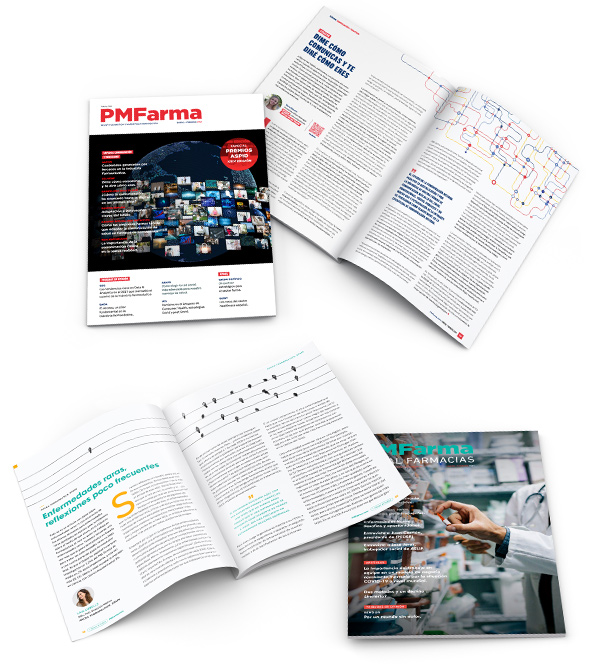Del 12 al 14 de marzo se celebrará en Barcelona una nueva edición del eyeforpharma Bcn, encuentro internacional que sirve para analizar las últimas tendencias de nuestro sector en lo que a marketing, ventas e innovación se refiere. Es por ello que desde PMFarma os iremos presentando en las próximas semanas los actores claves de este encuentro (en inglés). Hoy entrevistamos a Pol Vandenbroucke, Chief Medical Officer, Hospital Business Unit en Pfizer.

Could you briefly comment on your personal background?
I am the Chief Medical Officer of Pfizer’s Hospital Business Unit. The Hospital BU is a global Business Unit comprised of Pfizer’s branded hospital products, its sterile injectable portfolio and its anti-infective portfolio, spanning many different therapeutic areas and products. As the CMO for the BU I am responsible for a global medical in-country organisation as well as a headquarter staff that supports the different product groups. I was born and raised in Belgium where I studied Medicine but I have lived and worked in Mexico, Hong Kong, Japan and the US. My career has been divided almost equally between Medical Affairs and Clinical Development.
How has digitalization changed the pharmaceutical industry?
Pharma has always been in the data business as developing medicines is in essence developing data around a molecule, be it on efficacy, safety, drug interactions, etc. Digitalization has obviously made that process much faster and more efficient. The difference for the future is how artificial intelligence will revolutionise the way we look for possible solutions for diseases and how we produce and analyse the evidence supporting them. This is an opportunity as it will enable a much faster and efficient discovery and development effort. Additionally, it can lead to interesting partnerships with companies outside of pharma, who have led the way in gathering and analyzing data, to work together to make tremendous impacts on patient lives.
How has the role of the patient changed in recent years?
The role of the patient has changed fundamentally over the last few years and pharma’s engagement with patients and the medical community is evolving in the direction of true partnership. For patients, it is important not only to have access to transformative new medicines and vaccines to effectively treat and/or prevent disease, but also for information and education, so they can have more empowered conversations with their healthcare providers and play a more active role in the decisions affecting their health.
Conversely, we as an industry need to actively listen to the voice of the patient and put their needs and outcomes at the center of how we discover, develop and deliver new medicines, and engaging patients and patient organisations to that end will become more and more important throughout the entire product development process. Patients should be able to help shape not only individual study protocols but the whole approach to the development of a particular medicine or healthcare solution.
The pharmaceutical industry is already more than medicines, what should be its new added value?
The world’s population is aging fast, increasing healthcare needs while straining countries’ economies and healthcare budgets. The pharmaceutical industry has made many contributions in the form of product development over the years to ensure that this increased life span also means an increased health span. It can further contribute by maximizing the effectiveness of its products through providing services “beyond the pill” that increase clinical effectiveness and lower overall healthcare costs.
The patient is central in this. As I alluded to earlier, patient information and education, including on how to navigate the healthcare system, allow patients to have more empowered conversations with their healthcare providers and play a more active role in the decisions affecting their health. In addition, adherence programs, which encourage patients to stay compliant with their treatment regimen, can be very effective, especially in chronic conditions.
For health care providers, support for diagnosis and patient management is particularly important as well as sharing of best practice, subject to legal and regulatory restrictions.
Why is it important to attend eyeforpharma Barcelona 2019? What do you expect from this event?
Eyeforpharma gathers over 1300 pharma decision makers from Pharma companies’ Sales, Marketing, Patient Engagement, Patient Advocacy, Medical Affairs, Digital, Market Access and Real World Evidence functions together with health innovators, payers, patients, start-ups and cutting-edge tech. It is a must-attend event for anyone interested in the future of pharma. I expect to meet many great people that will provide me with valuable insights and I hope to meaningfully contribute to the discussions as well.













